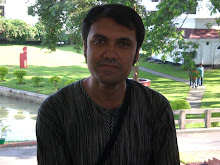
Addressing Rohingya crisis
By Samaha M Karim with Julhas Alam
FOOD and Disaster Management Minister Abdur Razzaque has said the government will take the Rohingya issue to international forum if the crisis is not resolved through bilateral negotiation with Myanmar.
“We are trying to resolve the issue bilaterally, but we won't hesitate to move to international bodies for a solution,” Razzaque told a discussion at National Press Club recently.
“We have done a lot for the Rohingya people over the years despite being a poor country, but we cannot afford it for an unlimited period,” he said.
The discussion on “Rohingya Crisis: Way Out for Bangladesh” was organised by the Centre for Education, Research and Advocacy (CERA), a Dhaka-based research and advocacy group, to highlight various aspects of decades-old crisis.
The academic nature of the discussion was focused on the origin of the crisis, its legal and humanitarian aspects, the possible role of local and international NGOs and the United Nations, options for diplomatic efforts in dealing with the crisis.
Less than 28,000 Rohingya Muslims live in two official camps run by the Food Ministry and UNHCR at Teknaf and Ukhia in Cox's Bazar, but there are 200, 000 others, some even say not less than 400,000, who are not recognised by Bangladesh as refugee. Some term them “economic migrants”, as they argue that many of the Rohingyas cross the border for better economic opportunities here in Bangladesh.
The documented Rohingya people in the camps get housing, food and healthcare in the official camps but the undocumented ones do not.
Local people say Rohingya people, who are not recognised as citizen by Myanmar, are causing many social obstacles in the coastal region.
On the other hand, human rights activists and international campaign groups demand the Bangladesh create bigger scopes for these persecuted people.
Referring to this complex context, the Food Minister said the government has no problem to document the rest, but it fears further influx from across the border where they allegedly face persecution by Myanmar's military junta.
The Food Minister also warned international NGOs for negative campaign against Bangladesh that they should be careful in the future before making any false and fabricated reports on so-called maltreatment of Rohingya people in Bangladesh.
Razzaque made the observation in the backdrop of recent campaigns by some groups that Bangladesh is cracking down on the Rohingya refugees.
“We want their support, but not any move that maligns our image abroad for something not actually happening here,” he said.
The minister argued that Bangladesh has done a lot since the 1970s when Rohingyas started coming here to flee the wraths of the Myanmar's government.
Muhammad Zamir, former Ambassador and Chief Information Commissioner, came down hard on the UNHCR for not making enough effort inside Myanmar to prevent Rohingya from crossing over to Bangladesh.
As a solution to the Rohingya setback he strongly insisted on a more proactive approach to be applied by the UNHCR and international organizations in supporting and rehabilitating Rohingyas.
Zamir said camps for Rohingyas could be set up by the UNHCR inside Myanmar territory and not in Bangladesh. He said the UNHCR should take the issue to the UNGA since Myanmar is a member state of the United Nations while there are scopes to raise the issue before ASEAN and OIC too since Myanmar is a member of ASEAN and Rohingyas are Muslims.
The former ambassador also said Bangladesh should put stricter measures in place along its border with Myanmar to prevent any further influx of Rohingya, while repatriation could be one of the major areas to deal with seriously.
'A more effective and meaningful border control mechanism should be enforced so that Rohingyas are stopped to cross over. Although it is a question of human rights, many countries have enforced a limit to the entrance of refugees,” Zamir said.
He said a proper registration system which would provide their identity with pictures and encrypted bar code could be introduced so that a more accurate number of the Rohingyas dispersed all over Bangladesh could be depicted.
Abu Murshed Chowdhury, a human rights activist from Cox's Bazar, said a huge presence of Rohingya people in Cox's Bazar and other parts of the Chittagong Hill Tract are putting extreme pressure on the resources.
“Local people are suffering a lot for their presence in huge number in the region,” he said. “They are causing deterioration of law and order in the region.”
Abu Naser Khan, Chairman of Paribesh Bachao Andolon, said Rohingyas are destroying hills and forests in Cox's Bazar and other nearby areas. “We need to deal with this very seriously to protect the special character of the region,” he said.
Dr Abu Jafar Shafiul Alam Bhuiyan of Mass Communication and Journalism at Dhaka University said the UN should work more vigorously for democratisation of Myanmar, otherwise, the situation may not remain under control regarding Rohingya crisis in Bangladesh.
He said the UN should take a proactive role shunning its current laid-back approach to resolve the issue.
CPB's Ruhin Hossain Prince said the government should look seriously into the allegations that a certain corner is using the Rohingyas for their political benefit.
He said extreme political elements are allegedly being injected to the Rohingyas taking the chance of frustration and desperation among them.
The participants suggested that a political resolution is also required and UN, International Organizations and NGOs vested in this issue should all unite to resolve this crisis upholding Bangladesh's security and sovereignty.
Representatives from some international agencies like Muslim Aid, UNHCR, IOM and the US Embassy also attended the occasion.
Julhas Alam is Correspondent of Associated Press and Samaha M Karim works with Law
http://www.thedailystar.net/law/2010/06/01/event.htm
